
2018 Participants at the Purdue Veterinary Medicine Open House
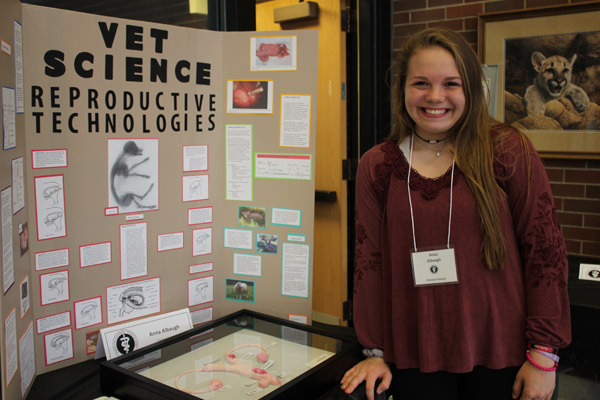
ANNA ALBAUGH
Reproductive Technologies
This poster and teaching aide discusses the reproductive parts of animal anatomy. Also represented is the stages of parturition, pregnancy detection techniques and methods of artificial breeding.
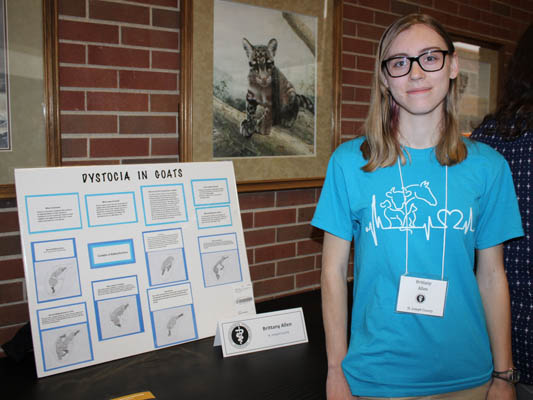
BRITTANY ALLEN
Dystocia in Goats
An overview of dystocia (difficult birth) in goats. This includes when to intervene, how to reposition kids, and how to prevent it from happening.
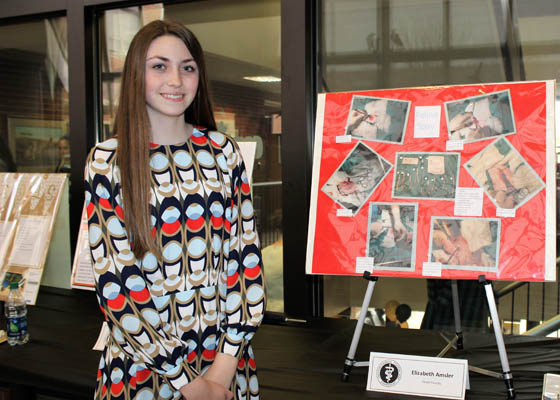
ELIZABETH AMSLER
Feline Spay
I observed and assisted with two spays. I took pictures of the process and the instruments that were used for the spay.
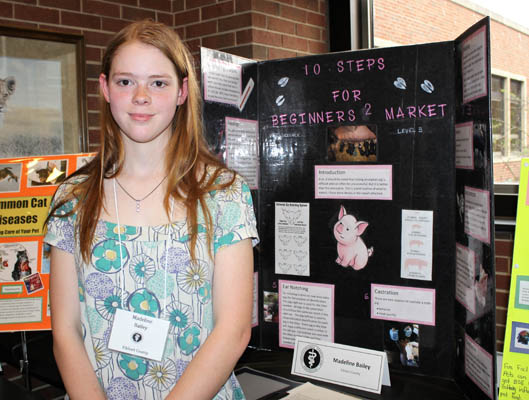
MADELINE BAILEY
Raising Baby Pigs
My project starts with farrowing and takes you through the top 10 things that need to happen to have healthy and happy swine. This is from raising an orphaned litter of pigs on my farm. From bottle to the show arena.
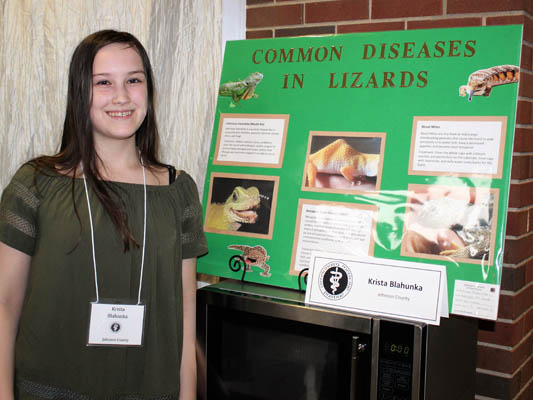
KRISTA BLAHUNKA
Common Diseases in Lizards
Three common diseases in lizards are infectious stomatitis (mouth rot), metabolic bone disease and blood mites. I describe each disease and its treatment.
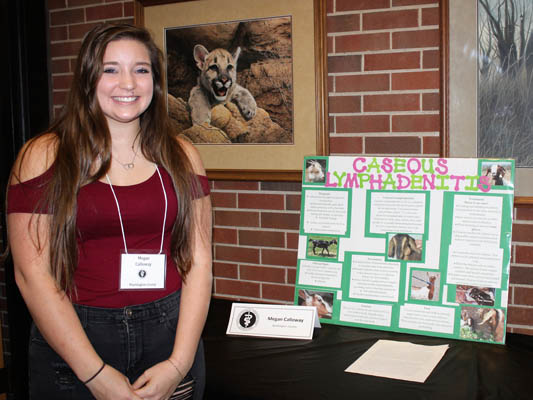
MEGAN CALLOWAY
Caseous Lymphadenitis
Goat breeders should be aware of Caseous Lymphadenitis or CL is a contagious bacterial disease. CL can cause loss of production and profit.
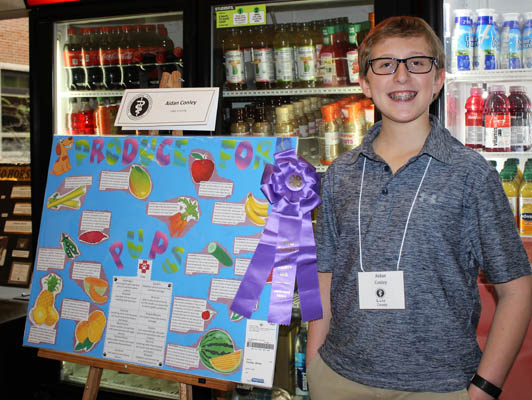
AIDAN CONLEY
Produce for Pups
"Produce for Pups" describes what is healthy for dogs to consume and what is hazardous and toxic when consumed. The healthy items are great to put into treats and snacks for your dog. Always remember to keep your dog away from anything you know that is hazardous and what you’re not certain about.
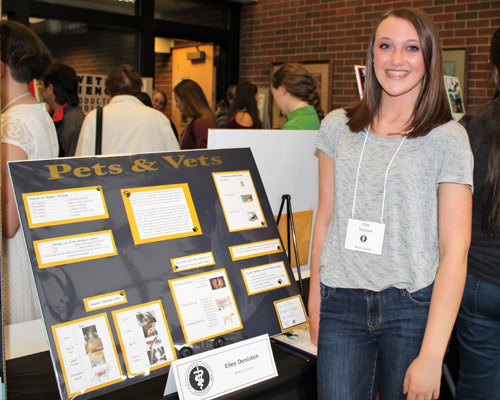
EILEE G. DENISTON
Pets and Vets
This project is about why we should take our animals to the vet and how it can prevent many diseases. As well as many things you can do to keep your pet healthy at home.
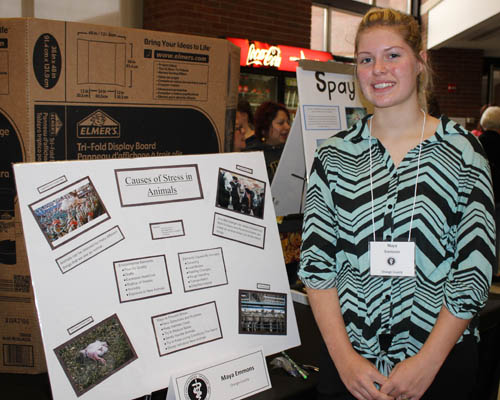
MAYA EMMONS
Causes of Stress in Animals
My project is about why animals get stressed. I have causes of stress listed in two categories, such as human made stress and environmental stress. My project also has pictures of what stress can do to animals.
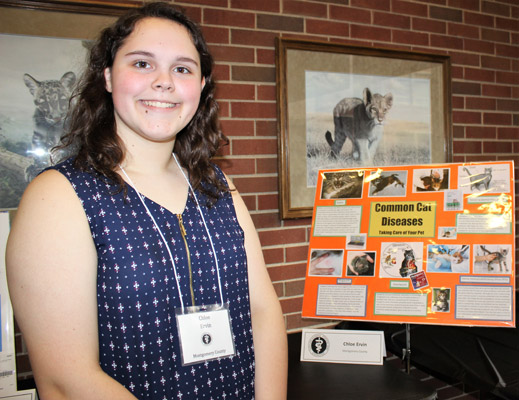
CHLOE ERVIN
Common Cat Disease
A poster with information on five common diseases treated for in cats. Information is on Rabies, Ringworm, Heartworm, Feline Immunodeficiency Virus (FIV) and Feline Leukemia Virus (FeIV).
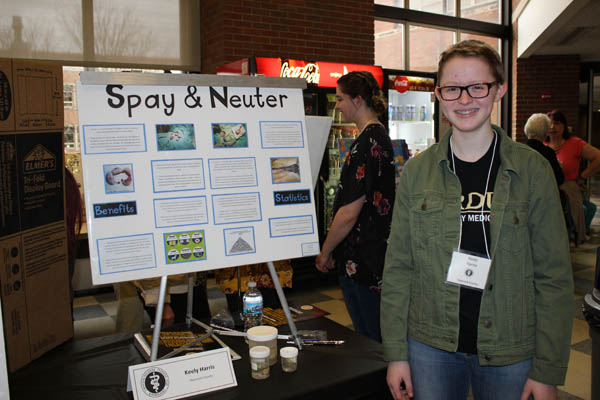
KEELY HARRIS
Spay and Neuter
My poster explains what spaying and neutering are. It also details some benefits and statistics of fixing your cat or dog. The presentation also includes preserved specimens.
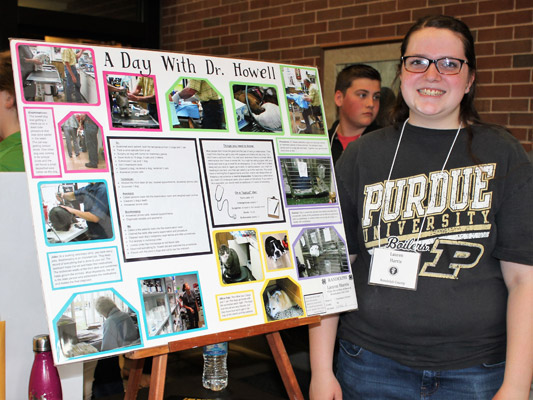
LAUREN HARRIS
A Day with Dr. Howell
I did an informative poster about my day shadowing my local veterinarian, Dr. Philip A. Howell. I observed and recorded the activities of an everyday vet through notes and pictures. It was very intriguing seeing how a veterinary clinic runs.
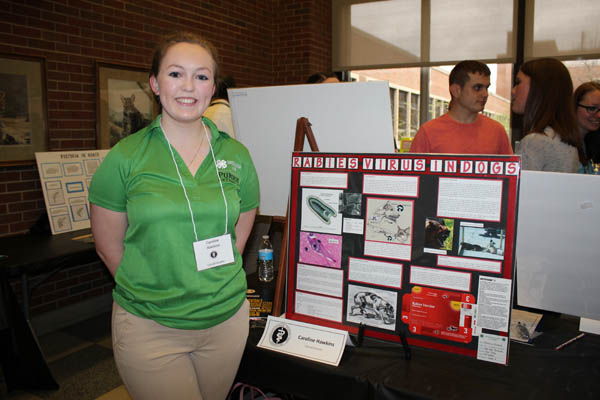
CAROLINE R. HAWKINS
Rabies Virus in Dogs
The title of my Veterinary Science (2017) poster is “Rabies Virus in Dogs.” On my poster I discuss what the virus is, how it is diagnosed and a little about the history of rabies in dogs. I explain how the virus is transmitted, the signs and symptoms of rabies in dogs, and the prevention of rabies through the use of vaccines.
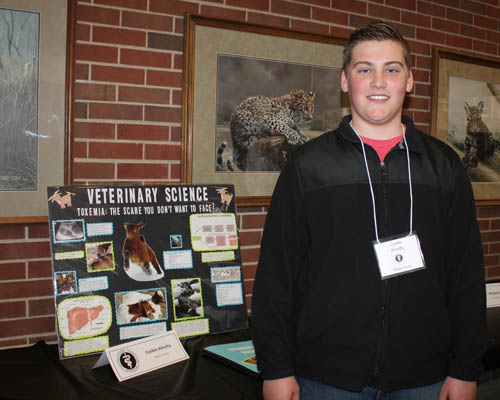
CORBIN HIRSCHY
Toxemia: The Scare You Don’t Want To Face!
My veterinary science project is about pregnancy toxemia and how you can prevent it from happening. At our farm we have registered Boer Goats. One of my main goals is to control this metabolic disease from devastating our herd.
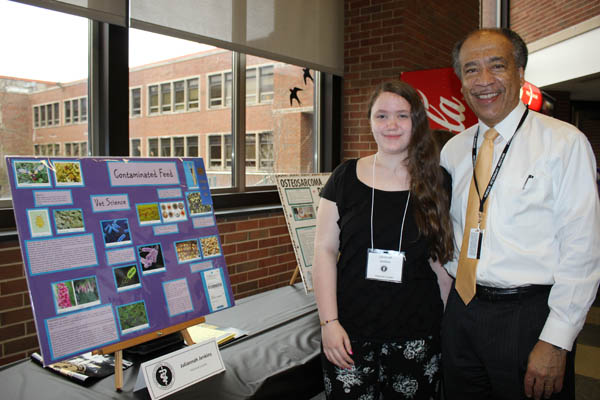
JULIANNAH JENKINS
Contaminated Feed
I displayed my project on a dark purple poster board with peacock blue paper around all my information and pictures. I researched the most common ways of feed contamination. I included bug contamination, fungi contamination, bacterial contamination and poisonous plants.
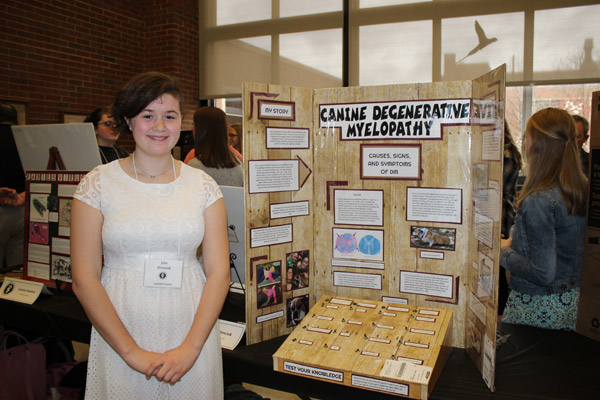
JOLIE KLIMCZAK
Canine Degenerative Myelopathy
My project is over how Canine Degenerative Myelopathy (Canine DM) affects dogs. It also talks about the signs and symptoms of Canine DM. I also share my personal experience with this horrible disease.
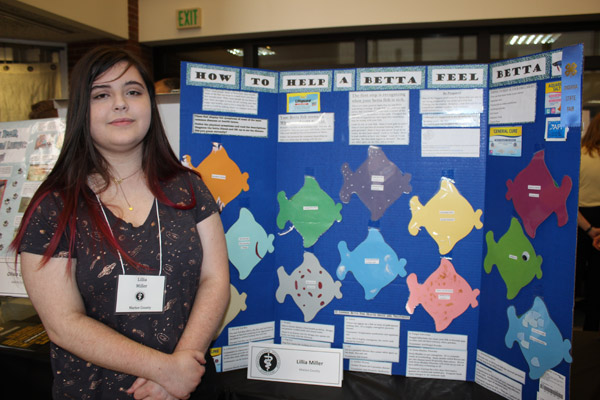
LILLIA MILLER
Betta Fish 911
My project is about some of the most common betta fish diseases and how to treat them. Some of the diseases include ich, parasites, and ammonia burn.
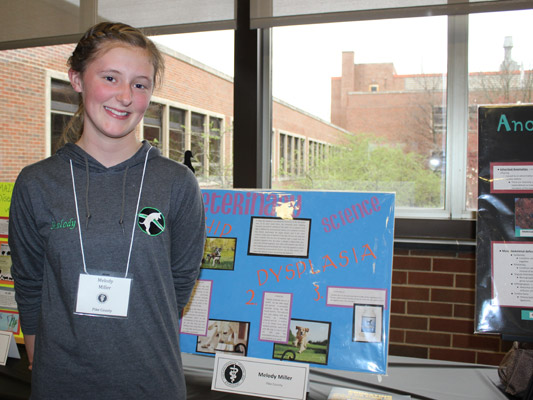
MELODY MILLER
Hip Dysplasia
In my veterinary project for my local county fair, I explain a few things about Hip Dysplasia in Dogs and how environmental factors cause a great deal of the cases of Hip Dysplasia. I then go on to give a couple ways we can reduce Hip Dysplasia in our own dogs.
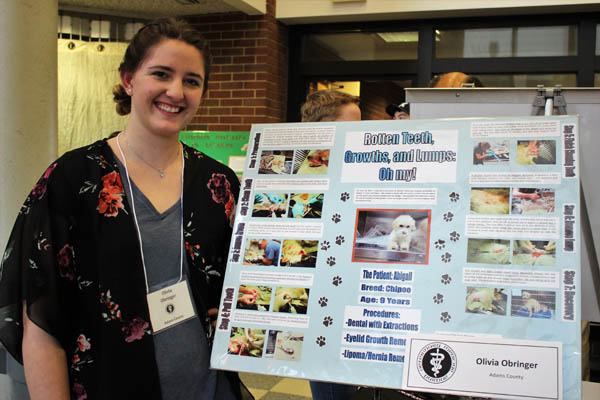
OLIVIA OBRINGER
Rotten Teeth, Growths and Lumps, Oh My!
For my vet science poster, my patient is Abigail, a 9-year-old Chipoo. She had a dental procedure, an eyelid growth removed and a lump removed on her side. My poster shows the step-by-step process of her three procedures.
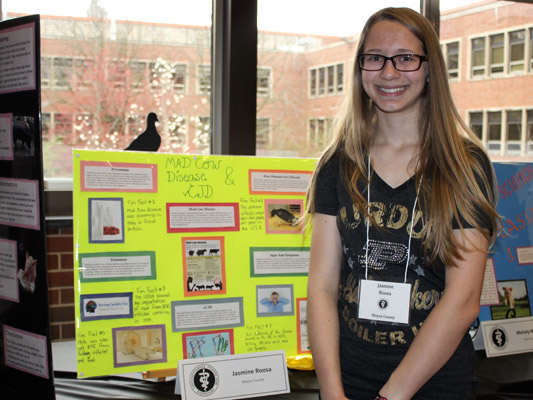
JASMINE ROOSA
Mad Cow Disease and vCJD
My project is on Mad Cow Disease and vCJD. The signs and symptoms, treatment and how it effects people.
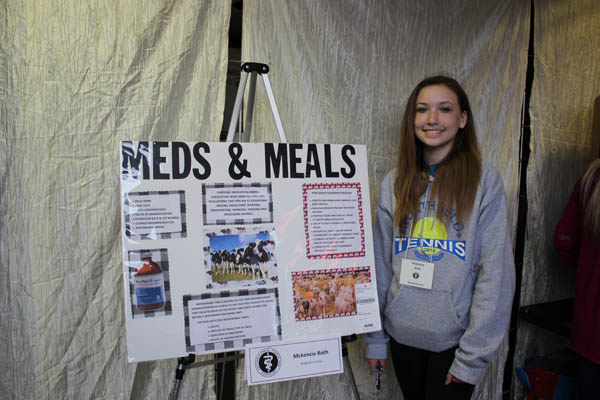
MCKENZIE ROTH
Meds and Meals
My poster is about treating food animals but being knowledgeable about the withdrawal times of medications before slaughter and keeping accurate animal records.
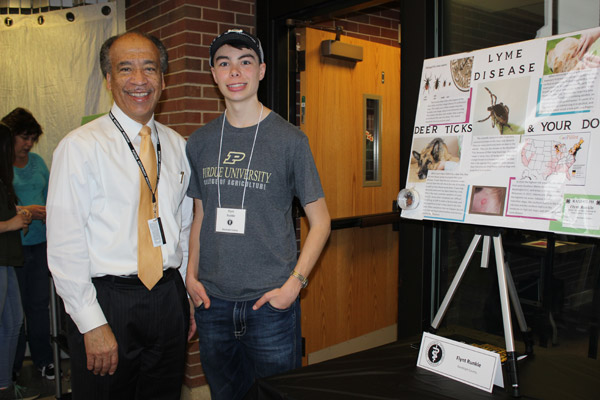
FLYNT RUNKLE
Lyme Disease, Deer Ticks and Your Dog
Deer ticks are scientifically known as Ixodes Scapularis. Deer ticks are smaller than a penny and closest object to their size is a sesame seed. Dogs who are bitten may become stiff to walk or to the touch and have difficulty breathing, these are the most common signs of when a dog has been bitten by a deer tick.
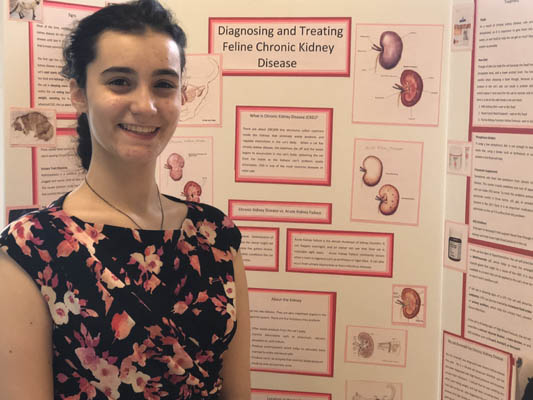
PATRICE SERIANNI
Diagnosing and Treating Feline Chronic Kidney Disease
This project is about feline kidney disease, a disease of the kidneys in cats. There are two types of kidney disease: chronic and acute. This project discusses ways to diagnose, treat, and prevent this fatal disease. Interactive activities to facilitate learning and fuel discussion are included.
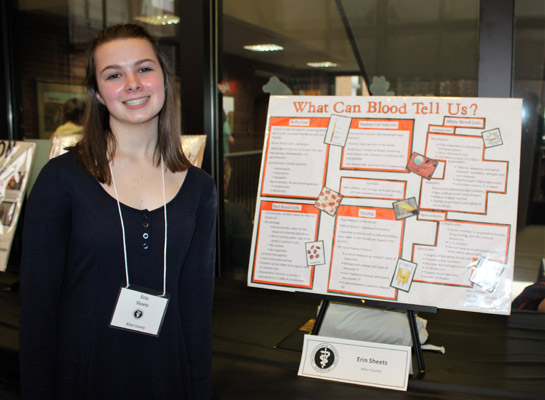
ERIN SHEETS
What Can Blood Tell Us?
This poster dives more in-depth into what makes blood…blood! It includes a closer look at specifics such as white blood cell types and what exactly a hematocrit is.
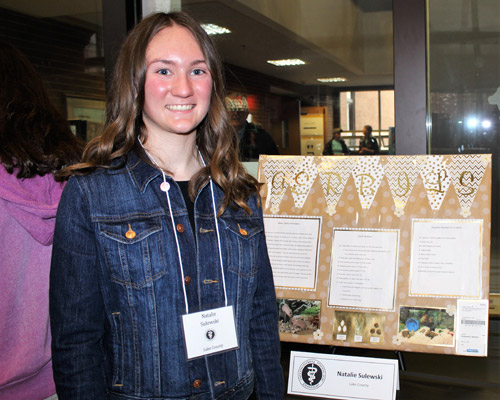
NATALIE SULEWSKI
Gerbils
This project demonstrates how to properly care for a gerbil. It includes information about care, nutrition, and supplies needed to give a gerbil a healthy life.
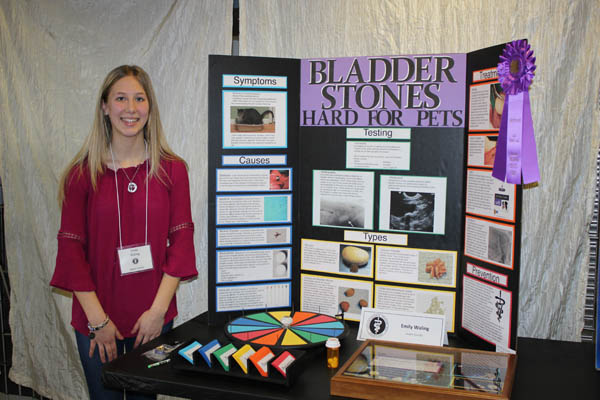
EMILY WALING
Bladder Stones: Hard for Pets
My project describes the symptoms, causes, types, treatment, and prevention of bladder stones. Along with my poster, I exhibited a display case of real samples of bladder stones. I also had a spinning quiz board. I chose this project topic, as we had to put our cat down after having bladder stones. This project was to help others know and prevent bladder stones in their own pets.
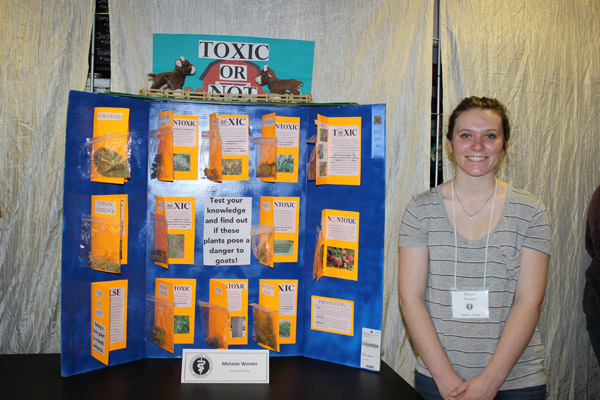
MELANIE WERNER
Poisonous Plants for Goats
Interactive poster shows plants that are poisonous for goats. Poster has examples of the plants and examples of plants that are not poisonous.
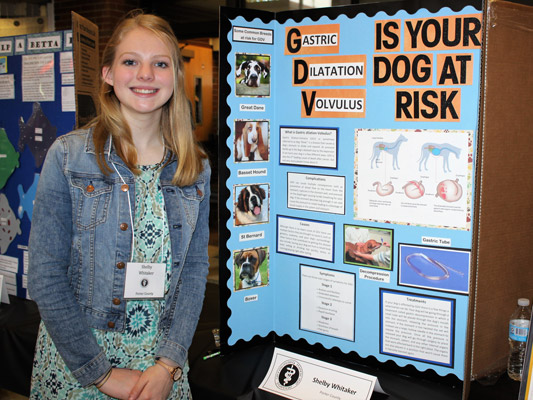
SHELBY WHITAKER
Gastric Dilatation Volvulus, Is your Dog At Risk?
My project is all about G.D.V. or gastric dilatation volvulus in dogs. On my poster, I talk about the complications, causes, symptoms, treatments and prevention of G.D.V. I also include diagrams and common breeds affected by GDV in my project.
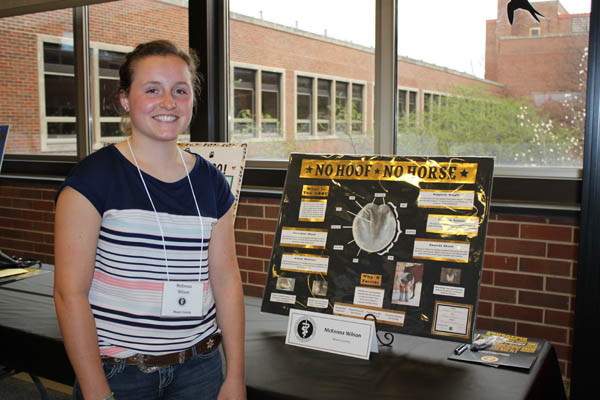
MCKENNA WILSON
No Hoof – No Horse
A horse’s hoof will determine the life a horse can have. My poster explains all of the functions a horse’s hoof does for the rest of its body. It also informs the reader why farriers are important to the health of a horse.
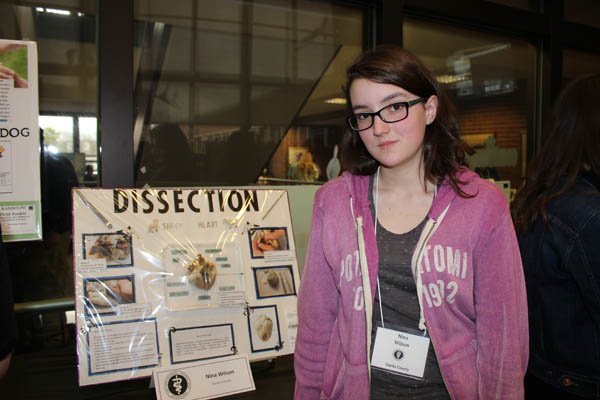
NINA WILSON
Dissection Sheep Heart
My project was about the dissection of a sheep heart. In this project, I explored the parts and functions of a sheep’s heart. It was interesting to find out these functions are very similar to that of a human’s heart.
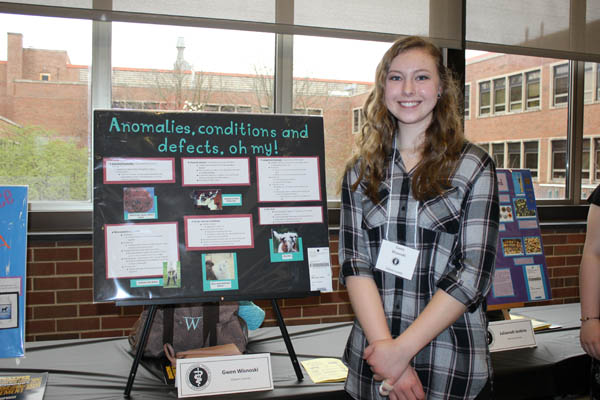
GWEN WISNOSKI
Anomalies, Conditions and Defects, Oh My!
Llamas and Alpacas experience life altering anomalies are either inherited or congenital. This project describes several of the conditions and defects they may experience.
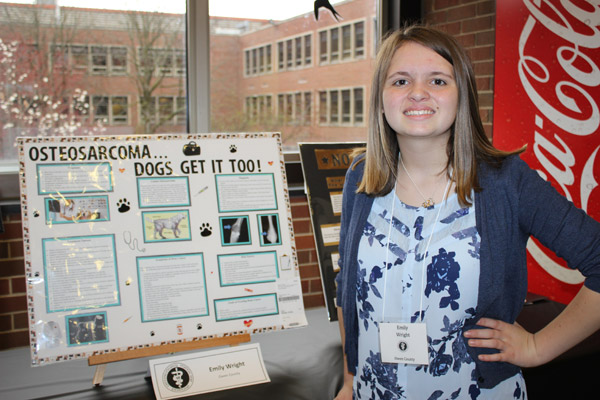
EMILY WRIGHT
Osteosarcoma in Dogs
My veterinary science project was done on osteosarcoma in dogs. Osteosarcoma is the most common type of bone cancer in dogs. This can affect any breed of dog, but more commonly occurs in larger dog breeds.

